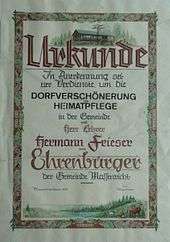Honorary citizenship

Honorary citizenship is a status bestowed by a country on a foreign individual whom it considers to be especially admirable or otherwise worthy of the distinction.
North America
By act of United States Congress and presidential assent, honorary United States citizenship has been awarded to only eight individuals.
Honorary Canadian citizenship requires the unanimous approval of Parliament. The only people to ever receive honorary Canadian citizenship are Raoul Wallenberg posthumously in 1985, Nelson Mandela in 2001, the 14th Dalai Lama, Tenzin Gyatso in 2006, Aung San Suu Kyi in 2007 Prince Karim Aga Khan in 2009 and Malala Yousafzai in 2017 (awarded in 2014).
Europe
In Germany honorary citizenship is awarded by cities, towns and sometimes federal states. The honorary citizenship ends with the death of the honoured, or, in exceptional cases, when it is taken away by the council or parliament of the city, town, or state. In the case of war criminals, all such honours were taken away by "Article VIII, section II, letter i of the directive 38 of the Allied Control Council for Germany" on October 12, 1946.
In Ireland, honorary citizenship bestowed on a foreigner is full legal citizenship including the right to reside and vote.[1]
Examples
- Berlin awarded Lucius D. Clay 1962 for his role as military governor and for creating the Berlin airlift[2] and Mikhail Gorbachev for his change in world politics that led to the fall of the Berlin Wall and the reunification of Germany.[3]
- Che Guevara was made an honorary citizen of Cuba by Fidel Castro for his part in the Cuban Revolution. Embarking on fomenting revolutions in other countries, Che Guevara, in his farewell letter to Fidel, gave up all his official ties to Cuba, including citizenship.[4]
- In 2002 South Korea awarded honorary citizenship to Dutch football (soccer) coach Guus Hiddink who successfully and unexpectedly took the national team to the semi-finals of the 2002 FIFA World Cup. Honorary citizenship was also awarded to Hines Ward, a black Korean American football player, in 2006 for his efforts to minimize discrimination in Korea against half-Koreans.
- To mark the occasion of the 50th anniversary of the first successful ascent of Everest the Nepalese government conferred honorary citizenship upon Hillary at a special Golden Jubilee celebration in Kathmandu, Nepal. He was the first foreign national to receive that honour.[5]
- In 2005, actress Angelina Jolie received an honorary Cambodian citizenship in 2005 for her humanitarian efforts
- In March 2007, cricketers Matthew Hayden and Herschelle Gibbs were awarded honorary citizenship of St. Kitts and Nevis, following their record-breaking innings in the 2007 Cricket World Cup
- In April 2013, Raoul Wallenberg became the first person to be granted an honorary Australian citizenship.[6][7]
- In August 2013, French actor Gérard Depardieu received an honorary citizenship by Belgium.[8]
- In October 2013, Argentinian football coach José Pekerman received Colombian citizenship after he qualified Colombia to the 2014 FIFA World Cup, the first World Cup for the country after a 16-year hiatus.[9]
- On 12 April 2017, Malala Yousafzai Of Pakistan was awarded honorary Canadian Citizenship by PM Justin Trudeau for her work on providing education to girls in her hometown Swat during Taliban occupation.
- On 12 July 2017, Ariana Grande was made an honorary citizen of Manchester for her efforts to raise funds for victims of the 22 May 2017 terrorist attack in Manchester Arena.
See also
Footnotes
- ↑ Irish Nationality and Citizenship Act, 1956 Section 12
- ↑ Berliner Ehrenbürger: Lucius Dubignon Clay on the website of the Abgeordnetenhaus of Berlin. Retrieved 17 January 2016 (in German).
- ↑ Berliner Ehrenbürger: Michael Sergejewitsch Gorbatschow on the website of the Abgeordnetenhaus of Berlin. Retrieved 17 January 2016 (in German).
- ↑ "Che's Farewell Letter". History of Cuba (historyofcuba.com). 1965. Retrieved 2009-09-22.
- ↑ Mountaineering Great Edmund Hillary passes away 12 January 2008 The Rising Nepal Archived March 4, 2008, at the Wayback Machine.
- ↑ "Holocaust hero named Australia's first honorary citizen", The Australian, 15 April 2013; Retrieved 6 May 2013
- ↑ Governor-General of the Commonwealth of Australia, Media Advisory: Governor-General to confer Honorary Australian Citizenship, 1 May 2013; Retrieved 6 May 2013
- ↑ Gerard Depardieu throws house-warming barbecue in Belgium. BBC News. Retrieved 24 August 2013
- ↑ "Pékerman podrá tener la nacionalidad colombiana cuando quiera: Santos", Caracol Radio, 11 October 2013; Retrieved 13 October 2013
External links
![]() Media related to Honorary citizenship at Wikimedia Commons
Media related to Honorary citizenship at Wikimedia Commons
Ariana Grande Was made an honorary citizen of the city of Manchester for her amazing effort of raising money for the victims of the attack on the Manchester arena on May 22,2017. She is a legend.